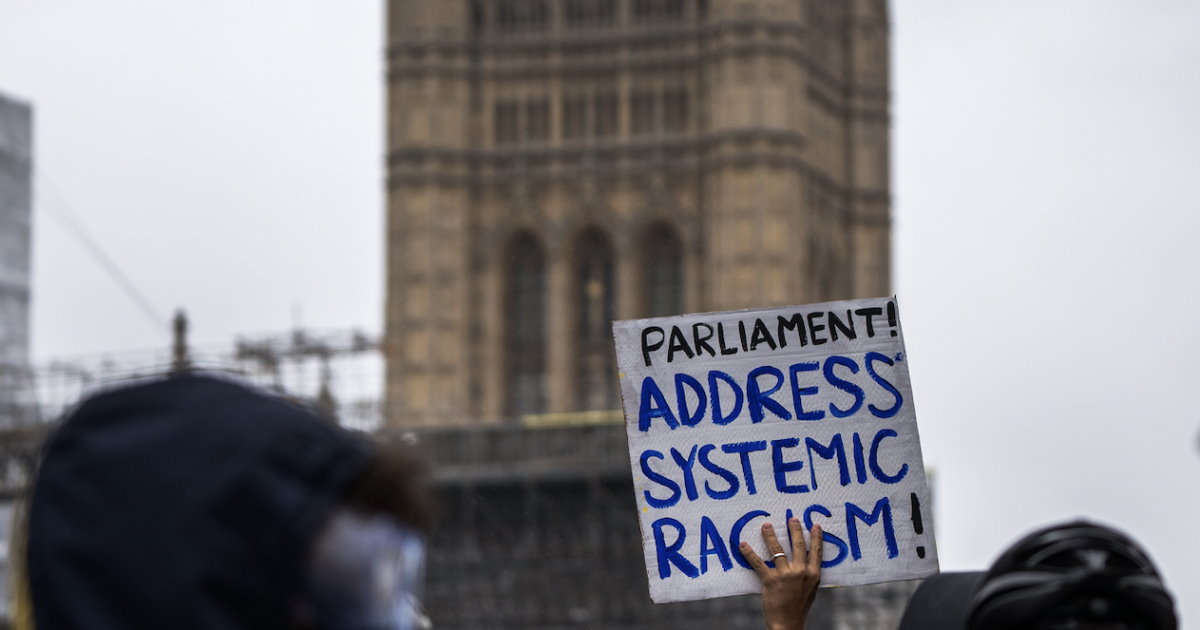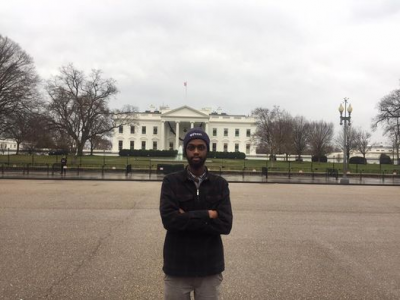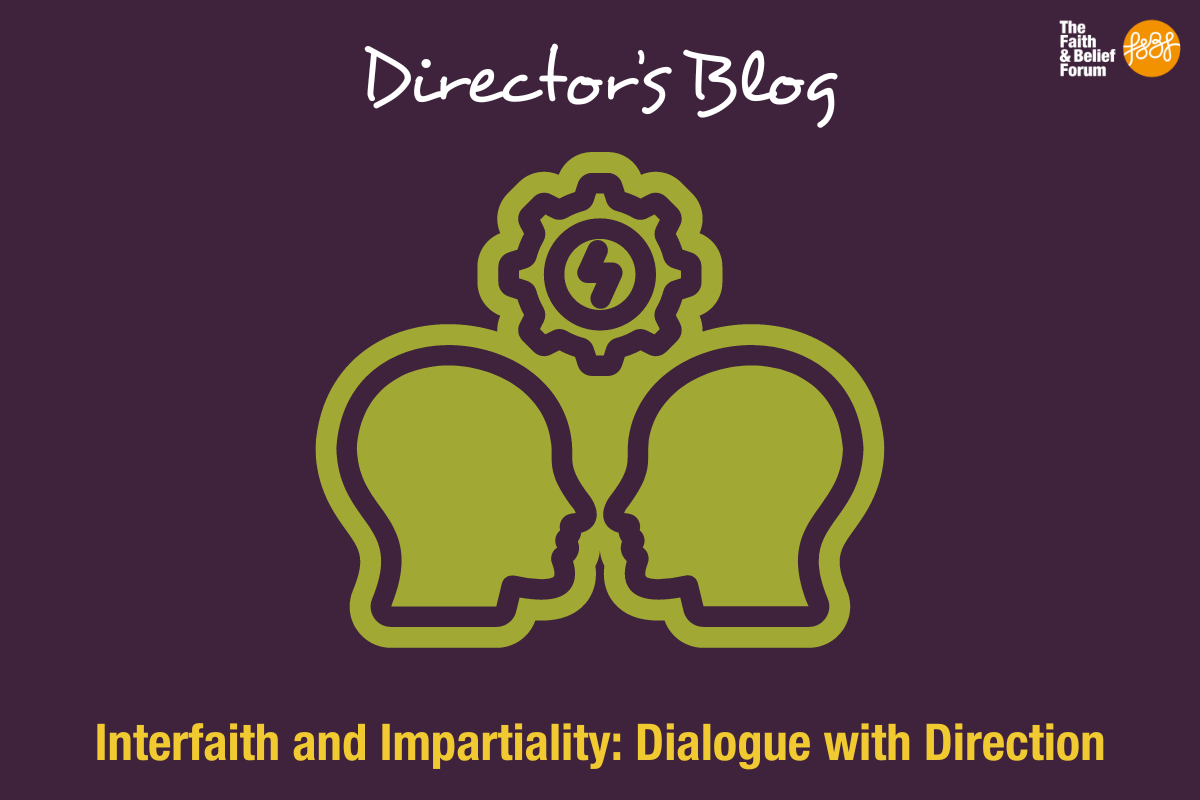
Challenging Faith Based Hate: True Stories
16 / 02 / 24
Menu

10 / 09 / 20

As part of our new blog series on Race, Faith and Belief, Samatar Aweys from our ParliaMentors leadership programme writes about the learning necessary to really tackle racism in society.

When, on 25 May 2020, the whole world saw a Minnesota police officer nonchalantly putting his knee on the neck of a civilian with his hands in his pockets, we found out that this wasn’t a moment of madness but rather 8 minutes and 46 seconds of madness and tragically cost the civilian, George Floyd, his life. Black Lives Matter swept the US and the rest of the world. The whole world woke up and saw that the plight of Blacks and ethnic minorities was no different in their country and the unfortunate reality is that it could have been on their patch of land. Black Lives Matter has brought awareness and camaraderie, with corporations and leaders commenting on the ever-lasting issue of racism in society, especially in the West where many of its countries’ wealth and institutions were literally built upon racism from oppression and enslavement.
I hope to touch on a couple of areas in detail that can mean we, as a collective society, can transition from this moment of awareness to practical change.
First issue I want to touch on is that we, as a society, have become accustomed to show outrage and anger towards those who are overtly prejudiced. It is easy to despise Trump and call him a racist for fuelling xenophobia and point fingers at those who commit hate speech. This leads many to feel good about themselves and feeling like they are on the morally right side. Surely that should be good news to people like me, with my thick beard and my dark skin tone or my sister with her hijab on, who are easily identifiable as the minority in this country – as calling out overt racism and prejudice can make this country equal and civil for all rather than just for Whites?
The truth is that on a day-to-day basis I would prefer not to receive hate speech while going about my day by a football hooligan, however, the unfortunate reality is that is far from the real issue. We as a society must start to address the real problem. While the hate speech would have a negative impact on my day it is simply an individual act of prejudice. But a system that discriminates and holds me back has a negative impact on my life, it literally defines me. It is a system set up to discriminate and define set groups and keep the status quo the same and it most certainly isn’t designed by the football hooligan who attacks me through hate speech.
When, as a Black man with a hood on, the White person almost automatically crosses the road in fear it doesn’t annoy me as much as going to the bank with a drawn-out business plan and being refused a loan. When it is four times as likely that I’ll be stopped-and-searched compared to my White counterpart it creates inbuilt frustration and anger towards a system and government that I perceive wants to see me and those like me fail.
Society, especially White people, must move away from feeling good about condemning name-calling acts of prejudice, which in truth is the very tip of the iceberg in terms of racism. When we move towards addressing acts of discrimination and the systemic racism prevalent, that to me is the real problem that needs to be addressed. That to me shows intent that a society wants to change. For it is easy to call out bigots, but if an ethnic minority colleague of yours is being given a lower salary or you receive promotion quicker without justifiable explanation, how easy is it to call that out? That will potentially hurt your own pockets but that is what moves society towards equality. That is not to say I am indifferent to being insulted in terms of my religion and race, of course not. I am saying that the true impact happens from top-down policies that seem very benign to those privileged enough to be a recipient of its benefits.
Secondly, I am a firm believer in not only charity starting at home but also change starting from home. Understanding that has led me to undertake politics within my community. I define politics as the look into human relations along with institutional relations on society. Therefore, regardless of who you vote for, it is very dangerous to believe that ticking a ballot box ever few years will create the change in human relations and institutional relations that we hope to see for wider change to occur.
I call that kind of politics passive democracy that keeps the status quo as it is. The solution that many provide is to have greater representation and that for those who represent us to be of the same background and melanin as us ethnic minorities will ensure that change occurs. My response to that is melanin doesn’t equal morality and having those with different skin tone in higher places won’t necessarily solve the problem. Who is to say they have the majority of ethnic minorities interests at hand (it is impossible to represent a community let alone a whole minority group).
I am not suggesting an abandonment of traditional politics and the voting system. Rather, I am suggesting balancing the politics of Westminster with political change within the community. Unfortunately, in my humble opinion, politics undertaken in Westminster is based on satisfying those with sufficient funding, lobby groups, and corporations. However, this should not mean a full abandonment of the system, as one should work alongside it and accept its flaws while actively working on how to fill the lacuna left by it. How can one pursue this? Through politics within the community, better known as community organising.
Community organising puts power to the people, creates a platform for institutions to be built and relations to occur that isn’t necessarily possible when solely reliant on Westminster to make change. We, specifically ethnic minorities, must move away from passively accepting the way society is and the minimal changes that occurs year on year while we get the shorter end of the stick. Being proactive and chasing outcomes is the start to signify independence and change can occur within before reaching out for a hand.
Being on the Faith & Belief Forum’s ParliaMentors programme truly exemplifies this blend of Westminster and local politics, through interacting with our mentor MP Stephen Timms and understanding his constituency work, while creating practical change within the community and leading by example. This has been an inspirational year and contributes so much to my idea of change not just within a Black Lives Matters context but in a wider context of societal issues and changes to overcome this.
Black Lives Matter came as a whirlwind with so much promise and hope for change. Unity between every race all under the same cause; to change the perennial plight of Black people (as well other ethnic minorities). For that togetherness to be worth anything down the road for now, it needs to be permanently instilled and remembered by everyone. This can only be done through altering the way we understand society and especially challenge while using whatever privilege society has given in a positive manner. The main method my suggested ideas could potentially come into fruition is through un-learning the status quo and re-learning the truth.
Education is the literal key to unlocking these changes. Whether through traditional schooling or other institutions and the power of the internet. Education is the bedrock of this cause. That is why I called the process of teaching and learning the quality of life of Black people Operation Change. It is going to take a thorough strategic plan to overcome the gap that the education system and society has not touched on about racism in society.
At a very basic level of learning about today’s society uncomfortable grapple with its systemic issues especially on race I would suggest the documentary 13th (available on Netflix) as well as purchasing Michelle Alexander’s New Jim Crow. The second suggestion is to buy the book Colour of Law by Richard Rothstein which talks about the issue of redlining and how the neighbourhoods were carefully constructed for African Americans and Whites over in the States. Many from UK reading this will question the relevance of looking over the pond and observing the racial tensions there. However, UK isn’t too dissimilar and has similar underlying issues. It is only exacerbated greater in US due to their history of slavery being on the land they currently live rather than exporting abroad (British Empire), thus birds of a feather flock together and UK will always look to US for solace in most forms of governance.
These issues go over the heads of many people as they dismiss BLM out of privilege. Privilege is defined as not having to be concerned on an issue as it doesn’t impact you and being able to dismiss it. To fight privilege, one must rather be sympathetic and be humble enough to educate themselves to support those oppressed.
Therefore, in my opinion, truly learning the reality of racism in society today is an equivalent to Neo in the Matrix choosing the Red Pill over the Blue, an uncomfortable choice but one that allows society to move towards greater equality.
Black Lives Matter isn’t merely here to raise the issue and show the injustice that keeps taking place, that is meant to be the job of the media and social media can be used as a tool to achieve this goal. The aim of Black Lives Matter is to address how the issues keep coming about and how the system can finally be put right, a quest only possible through truly educating those ignorant. Whether we can achieve this through the mainstream media and school system is still under question, but the wave of solidarity and inquiry into why this continually happens has brought hope; a great deal of it.

16 / 02 / 24

15 / 02 / 24

16 / 01 / 24